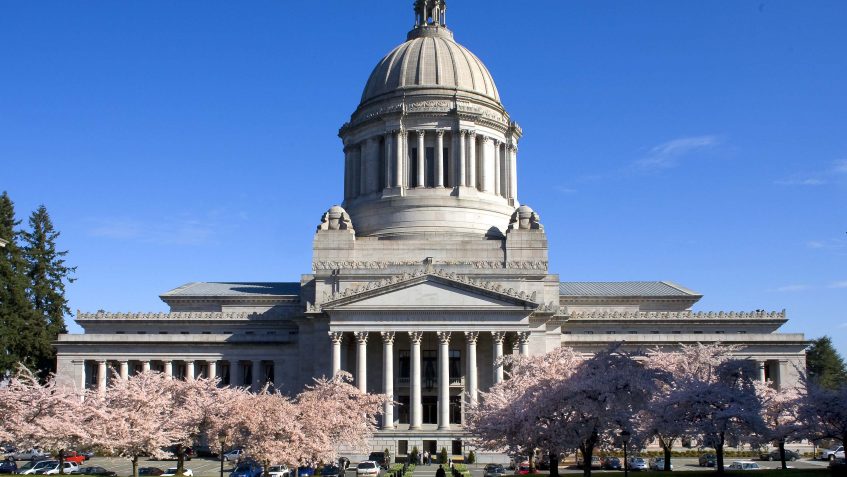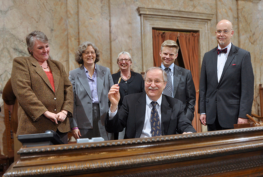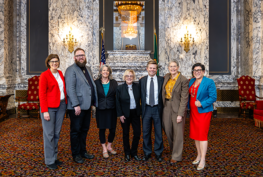OLYMPIA – Sen. Jamie Pedersen, D-Seattle, introduced legislation today to subject the Legislature to the state Public Records Act and make a broad range of records available to the public and press.
“The people of our state value both open government and effective government. This bill attempts to strike a balance between those important principles.” Pedersen said. “It’s time for the Legislature to recognize the ideals voters overwhelmingly approved in 1972. We must enable Washingtonians to know who is influencing the lawmaking process without compromising the ability of their elected representatives to craft sound legislation.”
Tentatively scheduled for a hearing on Feb. 13, Senate Bill 5784 would subject the Legislature to the Public Records Act and its disclosure requirements. Records that would become available include:
- Legislators’ correspondence on legislative business to and from persons outside the Legislature – most significantly, with lobbyists — including email and text messages. Constituent communications would also be available with personal details redacted to protect constituent privacy.
- Legislators’ calendars, including the names of individuals and organizations with whom legislators have met and the dates of the meetings.
- Final decisions of investigations and disciplinary proceedings by the Facilities and Operations and Executive Rules committees of the Senate and House, respectively.
The bill would apply to records in the possession of the legislative branch whether created before or after the effective date of the act.
The bill would identify a narrowly-tailored set of exemptions from disclosure, including:
- Communications with whistleblowers reporting allegations of improper governmental action; and
- Preliminary and deliberative process records and internal caucus communications, such as drafts of bills and amendments, and legislators’ communications with staff or other legislators; legal, fiscal, and policy analyses of such draft proposals; ballots for internal caucus elections; budget offers and counteroffers between caucuses and chambers; and preliminary vote counts on bills and amendments.
Any decision not to release a record would be subject to review by the judicial branch, beginning in Thurston County Superior Court.
The issue of access to legislative records resurfaced in 2017 when a group of media organizations sued the Legislature. The Legislature had denied the media access to records that the Public Records Act requires state agencies to disclose on request. Since the Legislature is not a state agency under the executive branch but an independent branch of government, it has considered itself exempt from many provisions of the act. Last year, however, a Thurston County superior court judge ruled that although the Legislature is not an agency, individual legislators’ offices are agencies and thus subject to the act. Both sides appealed that decision and the case remains in litigation.
Last year, the Legislature attempted to clarify the law by passing SB 6617. The bill drew widespread criticism for the manner and speed with which it was passed, as well as its approach of creating a separate disclosure act for legislative records and self-policing about what records would be released. After public outcry, Gov. Inslee vetoed the bill.
“We have listened and learned from the mistakes we made last year,” Pedersen said. “The Public Records Act has strengthened our state’s democratic standards and created a level of access to government strongly valued by Washingtonians. This legislation will strengthen the Public Records Act by substantially expanding access to legislative records. I look forward to a robust conversation with my colleagues about how we can continue to serve the public within the mandate that the public has given us for transparency in our work.”




